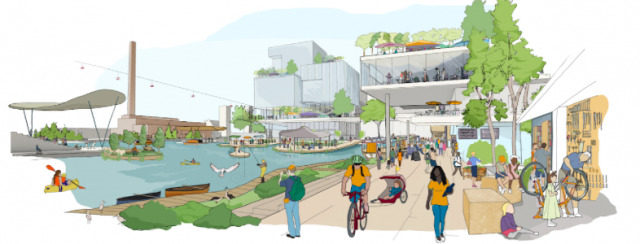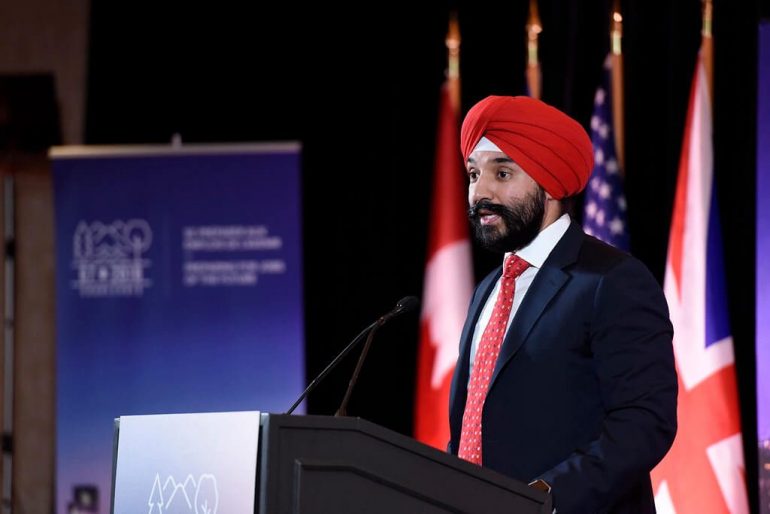As the globe come to grips with revelations of data and privacy misuse like the Cambridge Analytica scandal, a group of digital rights advocates are working to ensure Canada builds safeguards to protect the digital identities of citizens.
Tech Reset Canada—founded by TechGirls Canada’s Saadia Muzaffar, SqueezeCMM founder Jen Evans, privacy advocate Bianca Wylie, and entrepreneur April Dunford—has partnered with the Jim Balsillie-founded Centre for Digital Rights and the Mozilla-backed Digital Justice Lab to launch the Digital Rights Now petition, which seeks to “highlight the urgent need to have a national conversation about digital rights.”
The organization is hoping to get ahead of the problems that have plagued Silicon Valley, which has seen growth-at-all-costs tech giants face increased scrutiny from the public for their part in building toxic cultures, misusing data, and influencing public policy. A notable recent example is Seattle’s decision not to move forward with a head tax that would tackle the city’s homelessness problem due to pressure from Amazon—which may be a direct contributor to the city’s rising housing costs.
“Digital technologies, in many ways, replicate the social inequalities in our everyday life.”
– Nasma Ahmed, Digital Justice Lab
“I think we forget a lot of what we’re building and what we’re benefitting from is publicly funded infrastructure,” said Muzaffar. “A company like Uber totally relies on roads and infrastructure that they do not pay for. We have not had meaningful discussions around the tax benefits and the land deals that a company like Amazon gets when they choose a headquarters or warehouse…the same companies that say no to taxes also try to attract talent to Canada by saying we have free health care. You can’t have it both ways.”
Wylie has been an outspoken critic of Sidewalk Labs in Toronto’s waterfront, Alphabet’s smart city project announced in November 2017 with a $62 million investment from the company. While Sidewalk Labs has expressed a vision to make housing more affordable, it also wants to collect data on citizens with the stated reason of making services more accessible, which has drawn concerns from advocates like Wylie about governance policies (for its part, Sidewalk Labs has tapped privacy expert Dr. Ann Cavoukian to consider ‘privacy by design’ principles).

It still isn’t entirely clear how Sidewalk Labs will approach privacy and governance, though there is still plenty of hype coming from the government and tech communities. Wylie warns that elected officials becoming “smitten” with the idea of tech innovation hubs is part of the problem.
Sidewalk Labs has so far hosted two public consultations, but part of the challenge is that the public doesn’t have the materials on hand to make informed decisions, such as the signed agreements between groups involved, Wylie said.
The petition’s launch is timely, as the Canadian government recently announced that it would be running national public consultations related to privacy and consent when building digital infrastructure.
“We’re being told this is the way to do innovation in Toronto, and unfortunately there’s not a lot of room to say ‘hold on, what about this, and this, and this,’ and how do we include a different set of actors in what this economic development play might look like?” said Wylie. “A lot of stuff is pitched with innovation, whereas when you look at it—like modular housing— a lot of the stuff being pitched here, you don’t need to have data company involved if you want to do it. The language on how this project is unfolding and how it does or doesn’t connect to what’s happening on the ground is problematic because this would require real transparency, accountability, and joint decision making.”
The goal of the petition is to empower the public with the language and platform to say that they want to see more oversight in the digital arena. Through the Digital Justice Lab, executive director Nasma Ahmed works with diverse communities to help them make informed decisions around digital issues, and some of the issues she’s run into in these communities stem from a lack of knowledge-building around digital technologies—for example, when educational materials aren’t translated into different languages, people aren’t empowered with an understanding of their rights.
“Digital technologies, in many ways, replicate the social inequalities in our everyday life,” said Ahmed. “The lack of awareness has played a big role in that, but I also want to recognize that local communities actually do know what’s going on. If you’re black, brown, or Indigenous, you’re already being surveilled, whether it’s by state or corporation. There are people who do recognize the surveillance state we live in…but it’s difficult because there isn’t enough awareness about what your actual rights are when it comes to digital issues.”
As a start, Ahmed said that governments could consider community benefits agreements targeting tech companies similar to what developers must sign when building in certain areas.
The petition’s launch is timely, as the Canadian government recently announced that it would be running national public consultations related to privacy and consent when building digital infrastructure.
“Whatever we let happen is a choice,” said Muzaffar. “So sitting out of a development that’s happening that’s going to impact everybody—but some people more than others—is a choice. And the tech economy in Canada is at the level of maturity to realize that we can be political about these things. We have the influence to do things differently because we have the advantage of hindsight.”
Photo via Flickr.


